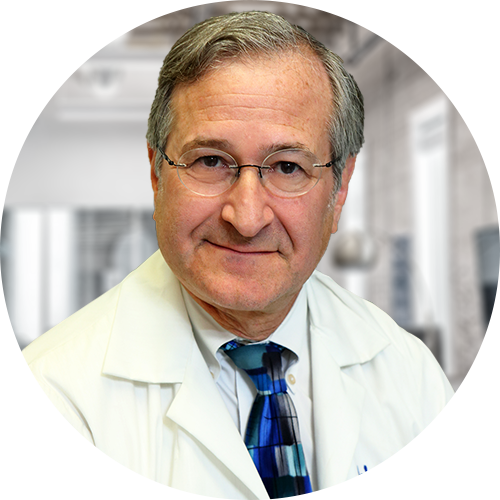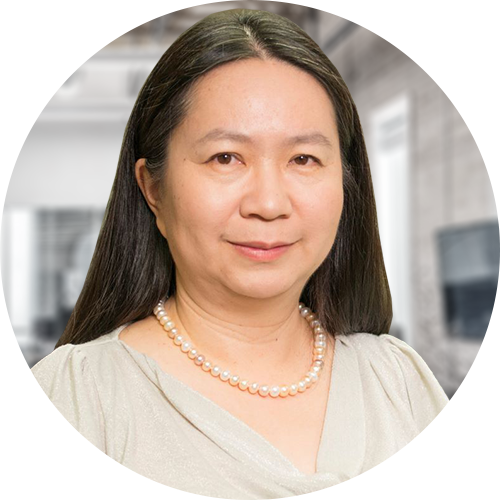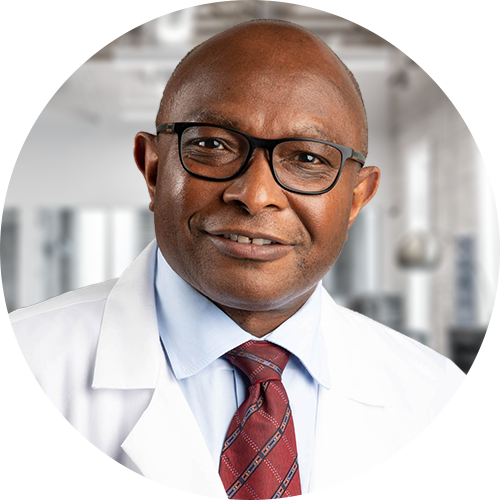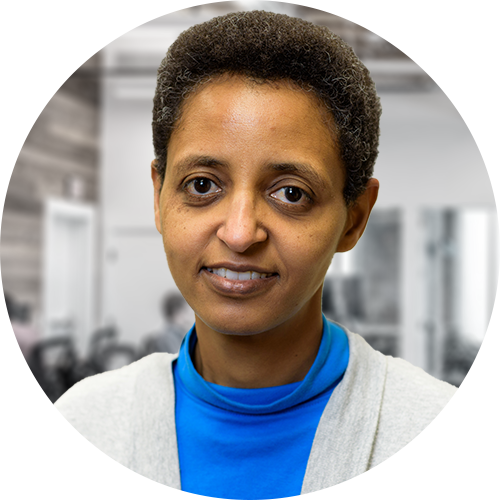
Researchers to Know 2021
Each year, the Illinois Science & Technology Coalition (ISTC) releases detailed metrics benchmarking Illinois’ innovation economy through our Illinois Innovation Index. This includes annual data on the volume of startups founded by students and faculty at Illinois universities, as well as research activity and output across the state’s campuses. While we view these metrics as vital for assessing Illinois’ progress in key economic development areas, taking this big-picture view of innovation can overlook the groundbreaking research being conducted by world-class researchers at our campuses across the state.
This year, to highlight university researchers who have made a significant impact in their field, ISTC is releasing its fourth annual list of “Researchers to Know” at Illinois’ universities. Though this list is far from comprehensive, it provides a more detailed look at some of the researchers that are driving innovation in the state—from those advancing new treatments in medicine, to those revolutionizing computing and shaping new technologies in the 21st century.
To create this list of distinguished researchers, ISTC reached out to university partners across the state to nominate faculty that have demonstrated excellence in their work. An emphasis was also placed on researchers that have recently achieved milestones, such as publishing an influential paper, receiving national recognition, or commercializing a new innovation. What follows is a cross-section of noteworthy faculty from all corners of the state – each possessing unique research strengths that illustrate the critical role of Illinois’ university research in the national innovation economy.
Spark
Stay up-to-date on all things science and technology.
PAST EDITIONS
Addressing COVID-19
Community Engagement
Data for Good
Improving Health Outcomes
Sustainability and Future Ag

Patricia Finn
University of Illinois Chicago
Inflammatory Disease • Organ Transplantation • Self-care
Research Description
Patricia Finn is a Professor and Head of the Department of Medicine at the University of Illinois at Chicago (UIC) College of Medicine. Prof. Finn’s research focuses on the microbiome and immune-mediated pulmonary diseases including sarcoidosis, organ transplantation, lung injury, and asthma. As head of the Department of Medicine at the University of Illinois at Chicago College of Medicine, Prof. Finn oversees the care, research, and academic activities of the department’s nine divisions. She also serves as associate dean for strategic initiatives and an associate program director for the medical scientist training program at UIC.
Prof. Finn’s research has attracted millions in outside funding, including a recent $3.6 million grant from the National Institutes of Health (NIH) to support precision medicine in sarcoidosis, an inflammatory disease that attacks multiple organs and disproportionately affects African Americans. As president of the Association of Professors of Medicine, Prof. Finn has also spoken widely on the emotional effects of COVID-19 and the importance of self-care. She joined Dr. Anthony Fauci earlier this year for a virtual conversation hosted by the Alliance for Academic Internal Medicine on the role academic medicine will continue to play during the COVID-19 pandemic and the lessons learned.
Learn more about Prof. Finn’s research here.

Richard Novak
University of Illinois Chicago
Infectious Diseases • HIV • Vaccines
Research Description
Richard Novak is the Harry F. Dowling Professor of Medicine and Chief of the Division of Infectious Diseases at the University of Illinois at Chicago. Prof. Novak is renowned for his research on all aspects of infectious diseases. He has been a leader in HIV research and treatment for over 30 years, and was involved in the initial drug trials using the drug azidothymidine (AZT) to treat patients with AIDS. Prof. Novak has been at the forefront of HIV vaccine and prevention trials, establishing a UIC clinical research site that has conducted a number of federal research studies. Prof. Novak is also co-director of the UIC Center for Clinical and Translational Science, which provides fundamental research services and tools, as well as mentoring and training.
As head of infectious diseases at the University of Illinois at Chicago, Prof. Novak has recently run several research studies on drugs to treat COVID-19. Prof. Novak was the principal investigator on a phase 3 trial of Remdesivir, a medication found to be effective against COVID-19. He is now involved in a second phase 3 trial to see if Remdesivir works better in combination with a second drug, Baricitinib. These trials have received over $24.5M in funding support from the National Institutes of Health (NIH). Under his watch, the Center for Clinical and Translational Science has also received $22M in NIH funding to support translational research.

Erik Procko
University of Illinois at Urbana-Champaign
Biochemistry • Receptor Proteins • Virus Treatment
Research Description
Erik Procko leads a productive research group at the University of Illinois, Urbana-Champaign, that focuses on mutations to proteins in the human body that act as receptors. During the COVID-19 pandemic, Prof. Procko’s research demonstrated that the receptor for SARS-CoV-2 is not a perfect match to the virus, and many mutations in the receptor strengthen virus binding. This insight enabled the development of decoys—engineered, free-floating receptor proteins—that lure and potently block the virus from infecting human cells. As a potential therapeutic agent for COVID-19 and other infectious diseases, a decoy receptor has one notable advantage over other drugs: To evade it, the virus would have to mutate in a way that would make it less infectious. A team across the Chicago and Urbana campuses of the University of Illinois has used the decoy to effectively treat animals infected with different SARS-CoV-2 variants.
Prof. Procko’s recent research on decoy receptors was funded in part by the National Institutes of Health and published in the journals Science and Science Advances. In total, Prof. Procko has authored more than 40 academic articles on topics including computational biology, protein structure, and receptor biochemistry.
Learn more about Prof. Pocko’s research here.

Kathryn Grant
DePaul University
Mentorship • Urban Poverty • Health Outcomes
Research Description
Kathryn Grant is Professor of Clinical Psychology and Vincent DePaul Professor at DePaul University. Prof. Grant’s research focuses on urban youth and their families This research includes assessing how stressful life experiences impact physical and mental health to develop prevention and intervention programs that improve health and societal outcomes. Much of Prof. Grant’s research is conducted in collaboration with institutional and community partners, including The University of Chicago, Loyola University, University of Illinois at Chicago, and Chicago Public Schools.
Prof. Grant’s work to improve the lives of urban youth and their families has led to significant grant funding from U.S. Department of Education and the National Institute of Mental Health. Most recently, Prof. Grant received a $3.8 million grant from the Department of Education for her study entitled “Evaluation of an Intervention to Improve Academic Outcomes for Low-Income Urban Youth through Instruction in Effective Coping Supported by Mentoring Relationships.” This funding will support Prof. Grant’s research-based, long-term mentoring program dedicated to supporting Chicago Public School students.
Learn more about Prof. Grant’s research here.

Nichole Pinkard
Northwestern University
Digital Media Education • Social Learning • Interdisciplinary
Research Description
Nichole Pinkard is an Associate Professor in the School of Education and Social Policy and faculty director of the Office Community Education Partnerships at Northwestern University. Prof. Pinkard’s research focuses on interdisciplinary digital media education among youth. She is the founder of Digital Youth Network (DYN) and L3, a social learning platform that connects youth’s learning opportunities across the school, home, community, and beyond. Through collaborations with city agencies, Pinkard and DYN’s work has ignited new models for reimagining, visualizing, and documenting learning across spaces through the creation of existence proofs in urban contexts.
Prof. Pinkard is the recipient of a 2014 Northwestern Alumni Award, a 2010 Common Sense Media Award for Outstanding Commitment to Creativity and Youth, and the 2004 the Jan Hawkins Award for Early Career Contributions to Humanistic Research and Scholarship in Learning Technologies, an NSF Early CAREER Fellowship, and a grant from the John D. and Catherine T. MacArthur Foundation for research on how digital media affects literacy. She also serves on the Advisory Board of the Joan Ganz Cooney Center and Institute of Play.

Chris Rudd
Illinois Institute of Technology
Community-led Design • Anti-Racist Infrastructures • Integration Zones
Research Description
Chris Rudd is an Instructor and Lead of community-led design for the Chicago Design Lab in the IIT Institute of Design (ID) at Illinois Tech. Rudd’s research focuses on designing anti-racist infrastructures and designing interventions to self-identified challenges caused by racism in communities. He has worked tirelessly with residents on the South and West Sides of Chicago on a series of anti-racist popups—challenging participants to engage with sensitive subjects through anti-racist participatory design. Most recently, Chris, along with four ID students, facilitated three anti-racist pop-ups to bring new design methods to Chicago communities. Partnering with local Black and brown-owned businesses, Chris and the ID students set up their design pop-ups in neighborhoods across Chicago, bringing communities, stakeholders, and experts together. The team sought to locate their pop-ups on the precipice of segregated neighborhoods to create what Rudd calls “integration zones.”
In addition to his role as an Instructor, Rudd recently became a full-time Clinical Professor of Practice. In 2016, as a Civic Innovation Fellow at the Stanford Institute of Design (d.school), Rudd developed Youth Tech Design, a program for at-risk youth to help bridge the gap between young people and the tech sector. The program allows young people to create solutions to self-identified societal issues. This year, Rudd was chosen to participate in the Chicago Urban League’s highly selective IMPACT Leadership Development Program, an intensive fellowship to assist Black professionals in advancing in their careers and bolstering the diversity of professional leaders in Chicago.

Maurice Dawson
Illinois Institute of Technology
Cyber Security • Cyber Forensics • Internet of Things (IoT)
Research Description
Maurice Dawson is Assistant Professor of Information Technology and Management and Director and Distinguished Member of the Center for Cyber Security and Forensics Education (C2SAFE) at the Illinois Institute of Technology. Prof. Dawson is a world-renowned cybersecurity expert, consulted by government and industry across the globe. His research has lead the field in the areas of counter terrorism, preventing human trafficking, and countering online extremism. Prof. Dawson is also a passionate advocate for a technology and cybersecurity industry that is more accessible and representative of the community it serves. This advocacy has led Prof. Dawson to mentor students all over the world and make academic contributions aimed at addressing the lack of minority women in leadership positions in health technology, nuclear energy, and the federal government.
Prof. Dawson’s research on domestic terrorism was presented by student researchers at the 2019 International Criminology Conference and published in in the Holistica Journal of Business and Public Administration in 2021. Additionally, he is the co-editor of Developing Next-Generation Countermeasures for Homeland Security Threat Prevention and New Threats and Countermeasures in Digital Crime and Cyber Terrorism. Prof. Dawson was also recently featured on WGN Chicago regarding extremist online activity. He was awarded Illinois Tech’s Teaching Award for the College of Computing in 2021 and Education Excellence Award in 2019.

Lichuan Liu
Northern Illinois University
Noise Reduction • Machine Learning • Infant Health
Research Description
Lichuan Liu is a Professor in the Department of Electrical Engineering at Northern Illinois University. Prof. Liu’s research focuses on digital signal processing, machine learning and active noise control. Her patented work in noise reduction for incubators in neonatal intensive care unit (NICU) infants is currently licensed to an industry partner. Prof. Liu’s research around infants has also resulted in development of an artificial intelligence algorithm that can detect the meaning behind babies’ cries including expressions of pain or discomfort. These expressions can help caregivers determine whether the cry is due to hunger, sickness, or pain, and the degree of urgency.
Prof. Liu’s work has been featured in Newsweek, Chicago Tribune, Mailonline, BBC Science, Chicago’s NBC5, Telemundo and The Mirror (UK), among others. Her research on noise reduction for NICU infants has received an NSF STTR Phase I award for feasibility testing and refinement, with her company also receiving two additional SBIR funding awards for further development. Prof. Liu is a senior member of several professional organizations in electrical engineering, such as the Institute of Electrical and Electronic Engineering, Women Institute of Engineering, Sigma-Xi and Network Networking Women.

Tanu Malik
DePaul University
Data Systems • Cyber Infrastructure • Databases
Research Description
Tanu Malik is an associate professor in the College of Computing and Digital Media and the Co-Director of the Data Systems and Optimization Lab at DePaul. Prof. Malik’s research focuses on database systems, data provenance, distributed systems, cyber-infrastructure and data virtualization techniques. Her research group is currently developing methods and systems for improving conduct of reproducible science in computational and data science disciplines.Through her research, Prof. Malik Tanu has actively collaborated with astronomers, geoscientists, and urban scientists across several institutions.
Prof. Malik’s research is funded by the National Science Foundation (NSF), the Department of Energy, the Sloan Foundation, and the Bloomberg Foundation. In 2019, Prof. Malik received the NSF CAREER award for her work on computational reproducibility. She is also chosen as a 2019 Fellow for Better Scientific Software.

Rama Ranganathan
University of Chicago
Biological Systems • Artificial Intelligence • Proteins
Research Description
Rama Ranganathan is the Joseph Regenstein Professor in the Department of Biochemistry and Molecular Biology in Pritzker School of Molecular Engineering at The University of Chicago. Prof. Ranganathan’s research focuses on understanding the basic principles of structure, function, and evolution in biological systems, with a particular emphasis on the atomic and cellular scale. In a breakthrough that could have implications across the healthcare, agriculture, and energy sectors, Prof. Ranganathan’s team has developed an artificial intelligence-led process that uses big data to design new proteins. Prof. Ranganathan also leads the UChicago Center for Physics of Evolving Systems and is the director of BioCARS beamline, which is a national user facility for structural biology located at the Advanced Photon Source at Argonne National Laboratory.
Prof. Ranganathan is the co-founder of Evozyne, which is one of the first startups to launch using a data-driven molecular engineering approach. Evozyne’s platform combines deep learning-based computational models and high-throughput gene synthesis and assay technologies to build novel, adaptive proteins with exceptionally advanced functionality. Evozyne strives to solve challenges in feeding the world, curing diseases, cleaning our environment, and making tomorrow’s materials. In 2016, Prof. Ranganathan received the Transformative Research Award from the National Institutes of Health Common Fund. He has also been honored with the Edith and Peter O’Donnell Award for Basic Science from the Academy of Medicine, Engineering, and Science of Texas and the Glenn Award for Research.

William Frost
Rosalind Franklin University of Medicine and Science
Brain Function • Computer Simulations • Brain Repair
Research Description
William Frost is Professor & Discipline Chair, Cell Biology and Anatomy and Director of the Stanson Toshok Center for Brain Function and Repair at Rosalind Franklin University of Medicine and Science. Prof. Frost’s research focuses on how neural networks process information, store memory and generate behavior. This research leverages an array of techniques, including behavioral studies, intracellular electrophysiology, optical recording of network activity with voltage sensitive dyes, as well as realistic computer simulations of the networks under study. In his role as director of the Stanson Toshok Center for Brain Function and Repair, Prof. Frost leads a team of researchers working to discover principles of brain function that may enable new methods for restoring function to neural networks damaged by aging, injury or disease.
Prof. Frost recently received a 3-year $600,000 National Institutes of Health (NIH) Brain Research Through Advancing Innovative Neurotechnologies (BRAIN) grant to create the first transgenic mollusc for neuroscience. The grant is part of a large award that includes researchers from five institutions, including the University of Massachusetts, Harvard, UC San Diego and the University of Maryland. In April of this year he also received a 5-year $1,950,000 NIH R01 grant for his research. In total, Prof. Frost has authored more than 50 academic articles on neural networks and related topics.

Raul Gazmuri
Rosalind Franklin University of Medicine and Science
Cardiac Arrest • Resuscitation • Mitochondria
Research Description
Raúl J. Gazmuri is a Professor and Director of the Resuscitation Institute at Rosalind Franklin University of Medicine and Science. Prof. Gazmuri’s research is centered on the role of mitochondria for resuscitation from cardiac arrest and other low-flow states. The strength of Prof. Gazmuri’s research has led to recognition from the university, leading to the creation of the Resuscitation Institute. Prof. Gazmuri has authored more than 180 publications, including book chapters, original peer-reviewed publications, consensus statements, guidelines, case reports, review articles, proceedings, letters to the editor, and editorials. He has received—as primary and senior author—multiple awards at annual scientific meetings sponsored by the American Heart Association and the Society of Critical Care Medicine.
Prof. Gazmuri has served as a member of the Advanced Cardiac Life Support Subcommittee of the American Heart Association and the International Liaison Committee on Resuscitation, involved in the development of CPR Guidelines. He also served as a member of the Clinical and Integrative Cardiovascular Science Study Section of the Center for Scientific Review at the National Institutes of Health, involved in the review of national grant applications. He is currently a member of the organizing committee of the Resuscitation Science Symposium at the American Heart Association.

Jon Klingensmith
Southern Illinois University Edwardsville
Heart Imaging • Cardiovascular Health • Software Algorithms
Research Description
Jon Klingensmith is an Associate Professor in the Department of Electrical and Computer Engineering at Southern Illinois University Edwardsville. Prof. Klingensmith’s research focuses on imaging to assess cardiovascular health. Layers of fat that develop around the heart influence the onset and progression of coronary artery disease, and can be an important indicator of cardiovascular risk. Current imaging modalities and software algorithms used to visualize and measure this important layer of fat are prohibitively expensive and not in widespread use. The object of Prof. Klingensmith’s research is to develop cost-effective and non-invasive image analysis tools for cardiovascular risk assessment.
Prof. Klingensmith’s research on a non-invasive assessment and possible detection of underlying coronary artery disease has recently been funded by the National Institutes of Health. His work has also been funded by the American Heart Association. A provisional patent was filed recently for developments made by Prof. Klingensmith, and he is currently pursuing potential commercialization pathways for the technology.

Kunle Odunsi
University of Chicago
Immunotherapy • Vaccines • Oncology
Research Description
Kunle Odunsi is the AbbVie Foundation Director of the University of Chicago Medicine Comprehensive Cancer Center and Biological Sciences Division Dean for Oncology and Professor of Obstetrics and Gynecology at The University of Chicago. Prof. Odunsi’s research focuses on understanding the mechanisms of immune recognition and tolerance in ovarian cancer and translating these findings to immunotherapy clinical trials. His research has led to the pioneering development of antigen-specific vaccine therapy and “next generation” adoptive T-cell immunotherapies to prolong remission rates in women with ovarian cancer. Prof. Odunsi’s methodical and rigorous research methods have made remarkable strides in understanding our immune system and its relationship to cancer.
Prof. Odunsi has received many honors and awards for his work, including election to the National Academy of Medicine in 2018 and the Rosalind Franklin Excellence in Ovarian Cancer Research Award in 2019. He has authored or co-authored more than 360 publications and contributed to several books and book chapters. His work has been funded by the National Institutes of Health (NIH), Department of Defense, Ludwig Institute for Cancer Research, Cancer Research Institute and the Ovarian Cancer Research Foundation Alliance, among others.

Marilyn Prasun
Illinois State University
Atrial Fibrillation • Heart Failure • Biomarkers
Research Description
Marilyn Prasun is the Carle BroMenn Endowed Professor, Mennonite College of Nursing at Illinois State University. Prof. Prasun’s research focuses include heart failure, atrial fibrillation, biomarkers, symptom management, quality of life, medication adherence and patient education. She has worked with patients diagnosed with heart failure in both the hospital and ambulatory care setting for the past twenty years, both as an advanced practice nurse and researcher. She works closely with graduate nursing students completing their terminal degree and teaches research. Prof. Prasun continues her research on heart failure and recently completed a funded study examining provider’s accuracy in assigning New York Heart Association Class (NYHA). The results of this study was presented at the American Heart Association Scientific sessions.
Prof. Prasun is a fellow in the American Heart Association. She is a charter member of the American Association of Heart Failure Nurses (AAHFN), where she has served as president and now serves at the chair of the Heart Failure Patient Foundation and the Nursing Research Consortium. In 2019, she was awarded with the AAHFN Distinguished Member Award for her service and contributions to Heart Failure Nursing.

Pengfei Song
University of Illinois at Urbana-Champaign
Ultrasound Imaging • Deep Learning • Cancer Screening
Research Description
Pengfei Song is an Assistant Professor of the Department of Electrical and Computer Engineering. Prof. Song’s research focuses on ultrafast ultrasound imaging, super-resolution ultrasound imaging, deep learning, and ultrasound elastography. His research centers around using an existing imaging technique—ultrasound—and supercharged its capabilities to improve cancer screening. Prof. Song’s method utilizes ultrafast tracking of microbubbles, which are the size of red blood cells, to image tissue microvasculature. The strength of Prof. Song’s research has led to a $2.2 million Department of Defense grant, in collaboration with the Mayo Clinic.
In addition to his appointment in the Department of Electrical and Computer Engineering, Prof. Song is a faculty member at the Beckman Institute for Advanced Science and Technology, and an affiliate faculty member with the Carle Illinois College of Medicine and the Department of Bioengineering. Prof. Song has authored more than 70 academic articles in the fields of ultrafast ultrasound imaging, deep learning, and ultrasound beamforming and signal processing, among others. Prof. Song holds several patents that have been commercially licensed by major ultrasound companies and used worldwide in clinic to benefit patients. He is a Fellow of the American Institute of Ultrasound in Medicine (AIUM), a Senior Member of the National Academy of Inventors, and was awarded the NIH K99/R00 Pathway to Independence Award and the NIBIB Trailblazer Award.

Walker Ashley
Northern Illinois University
Weather Extremes • Emergency Management • Climate Simulation
Research Description
Walker Ashley is a Professor in the Department of Geographic and Atmospheric Sciences at Northern Illinois University. Prof. Ashley’s research explores weather extremes and human vulnerability in the face of weather-related dangers and disasters. In an effort to save lives, his work has informed the public and emergency management services alike. Prof. Ashley is currently involved with a public-private partnership to provide existing weather and climate data foundations, expansion of both weather and climate datasets, model research and development, and the exploration of climate simulation/scenario analysis. Prof. Ashley and his team are also integral in fulfilling the Northern Illinois Center for Community Sustainability’s (NICCS) mission of addressing challenges of environmental change, shifting demographics and sociopolitical inequity that are impacting the region and the world.
Prof. Ashley’s research has gained widespread attention among scholars and media outlets, with over 3,000 literature citations and inclusion in media such as the New York Times, NPR, USA Today, the Washington Post, the Weather Channel and the Chicago Tribune, among others. The American Meteorological Society (AMS) has twice honored Prof. Ashley, most recently with its Roberts Lecturer in Interdisciplinary Sciences award. Prof. Ashley has also been awarded NIU’s President Teaching Professorship in 2018 and the 2021 NIU Presidential Research, Scholarship and Artistry Professorship—the university’s top recognition for these areas.

Sossina Haile
Northwestern University
Ionic Materials • Energy Technologies • Fuel Cells
Research Description
Sossina Haile is the Walter P. Murphy Professor of Materials Science and Engineering and co-director of the Institute for Sustainability and Energy at Northwestern (ISEN) at Northwestern University. Prof. Haile’s research focuses on solid state ionic materials and devices, with particular focus on energy technologies. This research has established a new class of fuel cells based on solid acid electrolytes and demonstrated record power densities for solid oxide fuel cells. Prof. Haile’s more recent work on hydrogen production from water by electrolysis has created new avenues for harnessing the vast potential of solar and wind electricity. In parallel, Haile has developed electrochemical devices that convert ammonia, an easily transported liquid fuel, into high purity hydrogen on demand.
Prof. Haile is currently working to commercialize her electrochemical device technology through SAFCell, a startup company that spun out of her lab in 2009. She is also working to bring sustainable technologies to the developing world through both her own research and the work coming out of the Joint Undertaking for an African Materials Institute (JUAMI), which she leads.
Prof. Haile recently received the 16th annual Dorothy Ann and Clarence L. Ver Steeg Distinguished Research Fellowship Award at Northwestern, and has been inducted into the American Ceramics Society, the Materials Research Society, and the African Academy of Sciences.
Learn more about Prof. Haile’s research here.

Luke Haverhals
Bradley University
Material Science • Sustainable Fabrics • Founder
Research Description
Luke Haverhals is a research professor in the Department of Chemistry and Biochemistry at Bradley University. Prof. Haverhals research focuses on analytical and physical chemistry and their application to material science. He has developed processes to create robust, high performance materials directly from biomass (agriculture) without use of glues and/or resins. These materials outperform unsustainable synthetic materials while also preserving resources, reducing costs, and facilitating ‘closed loop’ economies that distribute scalable manufacturing to more than 7 billion people. The materials also unlock new functionalities that are not possible with traditional synthetics.
To bring these development to the commercial market, Prof. Haverhals co-founded the startup Natural Fiber Welding (NFW). NFW’s core products include Claris™ and Mirum®. Claris is a performance cotton textile made with revitalized recycled fibers, while Mirum is a high-performance plant-based alternative to leather. Since launching in NFW in 2015, the company has raised more than $20 million in funding, including recent investments from popular brands Allbirds and Ralph Lauren. The company’s Mirum technology was named honorable mention in the Fast Companies 2020 World Changing Ideas contest.

Khalid Meksem
Southern Illinois University Carbondale
Plant Genes • Disease Resistance • Soybeans
Research Description
Khalid Meksem is a Professor in the School of Agricultural Sciences at Southern Illinois University Carbondale. Prof. Meksem’s research focuses on plant disease resistance and the improvement of economically important traits in soybeans. This research has led to important discoveries in the genes of plants, including the discovery of a metabolic gene with a role in disease resistance, as well as genes underlying the oil biosynthesis pathway soybeans.
Prof. Meksem has received more than $15 million in external research funding from federal and state agencies and commodity boards. He has co-authored more than 100 refereed manuscripts—including his metabolic gene discovery in the prestigious journal Nature—published 4 book chapters and edited 3 books. He has participated in more than 250 conference presentations and has been invited to give more than 60 talks across North and South America, Africa, Europe, Asia and Australia. Prof. Meksem is a member of the National Academy of Inventors and received the Scholar Excellence award from the College of Agricultural Sciences at Southern Illinois University Carbondale in both 2008 and 2014.
Learn more about Prof. Meksem’s research here.

John Sedbrook
Illinois State University
Crop Genetics • CRISPR • Pennycress
Research Description
John Sedbrook is a professor of genetics at Illinois State University. Prof. Sedbrook’s research focuses on fundamental and translational research aimed at developing new crops to be grown sustainably on otherwise fallow farmland for generating biofuels, food, feed, and industrial products. For example, Prof. Sedbrook and his team, in collaboration with the startup company CoverCress, Inc., have domesticated the weed pennycress into the oilseed cash cover crop, Covercress, by employing CRISPR gene editing technologies in combination with traditional breeding. The crop Covercress will be commercially launched in 2022, providing additional income to farmers and agribusinesses along with ecosystem benefits including reductions in nutrients runoff and soil erosion from farm fields, fitting between corn and soybeans throughout the 80 million-acre U.S. Midwest Corn Belt. When fully adopted, Covercress has the potential to produce up to 3 billion gallons of canola-quality seed oil annually along with high-protein seed meal.
The strength of Prof. Sedbrook’s research has led the U.S. Department of Energy to fund a $13 million nationwide project named the Integrated Pennycress Resilience Project (IPREP), led by Sedbrook at Illinois State University, to improve the stress resilience of the crop Covercress (domesticated pennycress). This new funding comes on the heels of a $10 million grant from the U.S. Department of Agriculture in 2019 that funds the Integrated Pennycress Research Enabling Farm and Energy Resilience (IPREFER) project, which has the goal establishing domesticated pennycress throughout the Midwest as a new oilseed cash cover crop. In addition to his research funding, Prof. Sedbrook has received the 2020 Illinois State University Outstanding University Researcher Award, and the 2017 Illinois State University College of Arts and Sciences Outstanding College Researcher Award.
Learn more about Prof. Sedbrook’s research here.

